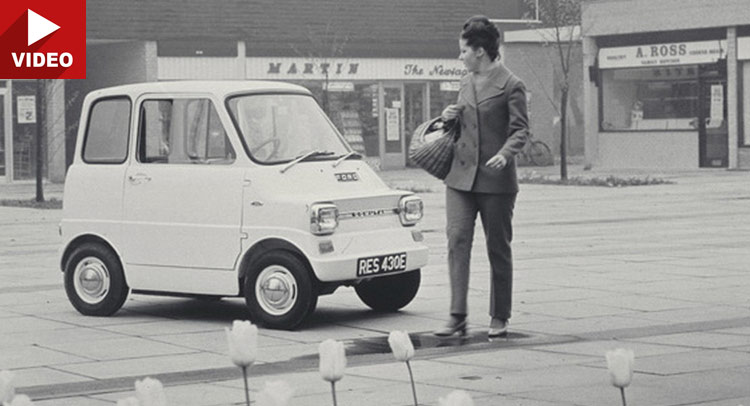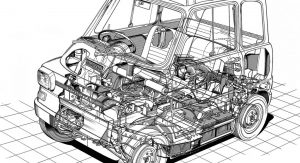You’d think EV tech has come a long way in recent years, and it has, but not really as much as you’ve been lead to believe. I`m sure you’re well aware of the semi-plausible conspiracy theories regarding the systematic suppression of electric cars throughout history to keep internal combustion engines relevant and attractive – there’s no evil in that, really, it’s just sadly the way pragmatic business sense triumphs…
Proof that EVs were relevant and very usable decades ago is the Ford Comuta, a minuscule all-electric vehicle made in 1967. It was an experimental vehicle powered by four 12 V batteries which gave it a maximum range of 37 miles or 60 km at 25 mph or 40 km/h, although its maximum speed was 37 mph.
It was merely produced in a couple of examples proof of concept, but with those figures we say it succeeded in proving its viability.
Wired quotes Leonard Crossland (managing director at the time, later general chairman) who, at the vehicle’s launch, said: “we expect electric cars to be commercially feasible within the next 10 years, although we believe their uses will be primarily as city-center delivery vans and suburban shopping cars. The internal combustion engine will continue to be the most practical form of power for long-distance and motorway driving, but we are sure that electric cars will have a part to play in meeting some future transportation needs.”
As we now already know, nothing happened ten years later, but the whole style of speech adopted by the high-ranking Ford exec is eerily similar to what we’re being fed today.
If you’re interested, one of the two Comutas is still with us, currently being preserved at the London Science Museum.









